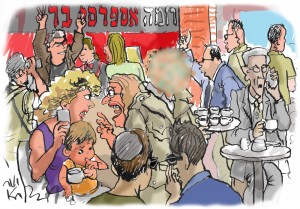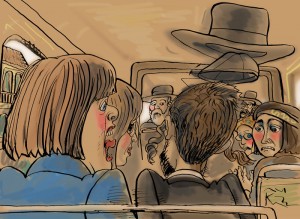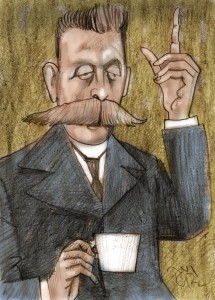My new column is up at the Daily Beast:
The news photos of Nadav Ben-Yehuda arriving at Ben-Gurion Airport from Nepal shows a gaunt-faced young man with one hand bound heavily in bandages. Ben-Yehuda became a hero, one could say, because he chose not to conquer the mountain.
I feel personal gratitude to him. Ever since I read Jon Krakauer’s Into Thin Air—more precisely, ever since I mainlined the book’s horrors directly into my nightmares—I’ve believed, or wanted to believe, in the theoretical certainty that an Israeli mountain climber would act as Ben-Yehuda did. Three hundred meters from the peak of Mt. Everest, he turned the theoretical prediction into reality.
Before I talk about Ben-Yehuda, a word more about Krakauer’s book. As you may remember, it’s a first-person account of the disastrous 1996 climbing season on Everest. Too many people reached the top during the same opening in the weather, which ended in a savage storm. Nine climbers died while Krakauer was on the mountain. Several people made desperate efforts to save others, even dying in the attempt.
This is just the setting of the nightmare. The nightmare, as Krakauer unflinchingly relates,













